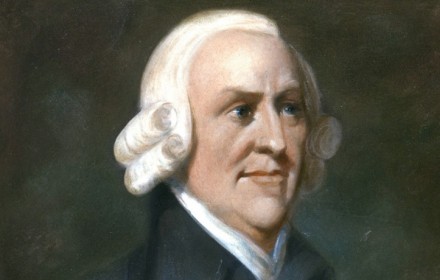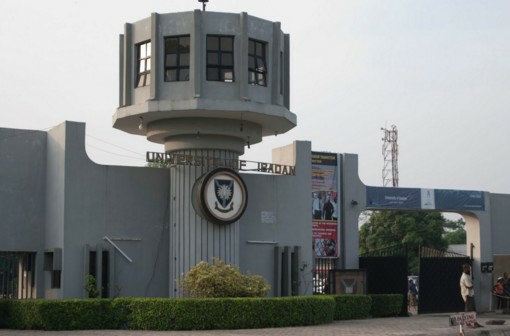By Zipporah Musau
At the dawn of independence, incoming African leaders were quick to prioritize education on their development agendas. Attaining universal primary education, they maintained, would help post-independence Africa lift itself out of abject poverty.
As governments began to build schools and post teachers even to the farthest corners of the continent, with help from religious organizations and other partners, children began to fill the classrooms and basic education was under way.
Africa’s current primary school enrollment rate is above 80% on average, with the continent recording some of the biggest increases in elementary school enrollment globally in the last few decades, according to the United Nations Educational, Scientific and Cultural Organization (UNESCO), which is tasked with coordinating international cooperation in education, science, culture and communication. More children in Africa are going to school than ever before.
Yet despite the successes in primary school enrollment, inequalities and inefficiencies remain in this critical sector.
According to the African Union (AU), the recent expansion in enrollments “masks huge disparities and system dysfunctionalities and inefficiencies” in education sub-sectors such as pre-primary, technical, vocational and informal education, which are severely underdeveloped.
It is widely accepted that most of Africa’s education and training programs suffer from low-quality teaching and learning, as well as inequalities and exclusion at all levels. Even with a substantial increase in the number of children with access to basic education, a large number still remain out of school.
A newly released report by the United Nations Development Programme (UNDP), “Income Inequality Trends in sub-Saharan Africa: Divergence, Determinants and Consequences”, identifies the unequal distribution of essential facilities, such as schools, as one the drivers of wide income disparities.
Ayodele Odusola, the lead editor of the report and UNDP’s chief economist, makes the following point: “Quality education is key to social mobility and can thus help reduce poverty, although it may not necessarily reduce [income] inequality.”
To address education inequality, he says, governments must invest heavily in child and youth development through appropriate education and health policies and programmes.
Higher-quality education, he says, improves the distribution of skilled workers, and state authorities can use this increased supply to build a fairer society in which all people, rich or poor, have equal opportunities. As it is now, only the elites benefit from quality education.
“Wealthy leaders in Africa send their children to study in the best universities abroad, such as Harvard. After studies, they come back to rule their countries, while those from poor families who went to public schools would be lucky to get a job even in the public sector,” notes Odusola.
Another challenge facing policy makers and pedagogues is low secondary and tertiary enrollment. Angela Lusigi, one of the authors of the UNDP report, says that while Africa has made significant advances in closing the gap in primary-level enrollments, both secondary and tertiary enrollments lag behind.
Only four out of every 100 children in Africa is expected to enter a graduate and postgraduate institution, compared to 36 out of 100 in Latin America and 14 out of 100 in South and West Asia.
“In fact, only 30 to 50% of secondary-school-aged children are attending school, while only 7 to 23% of tertiary-school-aged youth are enrolled. This varies by sub-region, with the lowest levels being in Central and Eastern Africa and the highest enrolment levels in Southern and North Africa,” Lusigi, who is also the strategic advisor for UNDP Africa, told Africa Renewal.
According to Lusigi, many factors account for the low transition from primary to secondary and tertiary education. The first is limited household incomes, which limit children’s access to education. A lack of government investment to create equal access to education also plays a part.
“The big push that led to much higher primary enrollment in Africa was subsidized schooling financed by both public resources and development assistance,” she said. “This has not yet transitioned to providing free access to secondary- and tertiary-level education.”
Another barrier to advancing from primary to secondary education is the inability of national institutions in Africa to ensure equity across geographical and gender boundaries. Disabled children are particularly disadvantaged.
“Often in Africa, decisions to educate children are made within the context of discriminatory social institutions and cultural norms that may prevent young girls or boys from attending school,” says Lusigi.
Regarding gender equality in education, large gaps exist in access, learning achievement and advanced studies, most often at the expense of girls, although in some regions boys may be the ones at a disadvantage.
UNESCO’s Institute for Statistics reports that more girls than boys remain out of school in sub-Saharan Africa, where a girl can expect to receive only about nine years of schooling while boys can expect 10 years (including some time spent repeating classes).
More girls than boys drop out of school before completing secondary or tertiary education in Africa. Globally, women account for two-thirds of the 750 million adults without basic literacy skills.
Then there is the additional challenge of Africa’s poorly resourced education systems, the difficulties ranging from the lack of basic school infrastructure to poor-quality instruction. According to the Learning Barometer of the Brookings Institution, a US-based think tank, up to 50% of the students in some countries are not learning effectively.
Results from regional assessments by the UN indicate “poor learning outcomes in sub-Saharan Africa, despite upward trend in average learning achievements.” Many children who are currently in school will not learn enough to acquire the basic skills needed to lead successful and productive lives. Some will leave school without a basic grasp of reading and mathematics.
Overcoming
The drivers of inequality in education are many and complex, yet the response to these challenges revolves around simple and sound policies for inclusive growth, the eradication of poverty and exclusion, increased investment in education and human development, and good governance to ensure a fairer distribution of assets.
With an estimated 364 million Africans between the ages of 15 and 35, the continent has the world’s youngest population, which offers an immense opportunity for investing in the next generation of African leaders and entrepreneurs. Countries can start to build and upgrade education facilities and provide safe, non-violent, inclusive and effective learning environments for all.
The AU, keeping in mind that the continent’s population will double in the next 25 years, is seeking through its Continental Education Strategy for Africa 2016–2025 to expand access not just to quality education, but also to education that is relevant to the needs of the continent.
The AU Commission deputy chairperson, Thomas Kwesi Quartey, says governments must address the need for good education and appropriate skills training to stem rising unemployment.
Institutions of higher learning in Africa, he says, need to review and diversify their systems of education and expand the level of skills to make themselves relevant to the demands of the labour market.
“Our institutions are churning out thousands of graduates each year, but these graduates cannot find jobs because the education systems are traditionally focused on preparing graduates for white-collar jobs, with little regard to the demands of the private sector, for innovation or entrepreneurship,” said Quartey during the opening of the European Union–Africa Business Forum in Brussels, Belgium, in June 2017.
He noted that if African youths are not adequately prepared for the job market, “Growth in technical fields that support industrialization, manufacturing and development in the value chains will remain stunted.” Inequality’s inclusion among the Sustainable Development Goals (SDG 10: Reduced Inequalities) serves as an important reminder to leaders in Africa to take the issue seriously.
For a start, access to early childhood development programmes, especially for children from disadvantaged backgrounds, can help reduce inequality by ensuring that all children begin formal schooling with strong foundations.
The UNDP, through its new strategic plan (for 2018 through 2021), will work to deliver development solutions for diverse contexts and a range of development priorities, including poverty eradication, jobs and livelihoods, governance and institutional capacity and disaster preparedness and management.
*Africa Renewal is published by the UN’s Department of Public Information (DPI)












Recent Comments